Featured Photo Above:
Combined 1903 World Series Photo: Pittsburgh Pirates and Boston Pilgrims
(Color Restoration by Chris Whitehouse of Mancave Pictures)
Baseball History Comes Alive Now Ranked As a Top Five Website by Feedspot Among All Baseball History Websites and Blogs!
(Check out Feedspot's list of the Top 35 Baseball History websites and blogs)

Guest Submissions from Our Readers Always Welcome! Click for details
Scroll Down to Read Today’s Essay
Subscribe to Baseball History Comes Alive for automatic updates (sign-up block found in right side-bar)
As a Free Bonus for subscribing, you’ll get instant access to my two Special Reports: Memorable World Series Moments and Gary’s Handy Dandy World Series Reference Guide!
Ty Cobb Photo Gallery
Click on any image below to see photos in full size and to start Photo Gallery:
1912: Ty Cobb’s Sets Another Record!
Sportswriter: “Ty, what do you think you’d hit against today’s pitching?”
Ty Cobb: “Only .300, but you’ve got to remember – I’m seventy-three!”
One hundred nine years ago yesterday, July 31, 1912, Ty Cobb goes 1-for-4 in a Tigers’ victory over the Washington Senators at Navin Field. It’s Cobb’s 68th hit in 137 at-bats (.496) during July, the most ever collected in a single month by a major leaguer. It’s just one of many records set by Cobb over his career. Let’s take a look at some of those records.
Ty Cobb’s Career
Over his 24-year career (1905-1938), Cobb played for the Tigers (1905-1926), and the Athletics (1927-28). He batted .366 (1st all-time), with 4189 hits (2nd all-time), 117 home runs, 1944 RBIs (8th all-time), 897 stolen bases (4th all-time),
2245 runs (2nd all-time), 724 doubles (4th all-time), a .433 on-base percentage
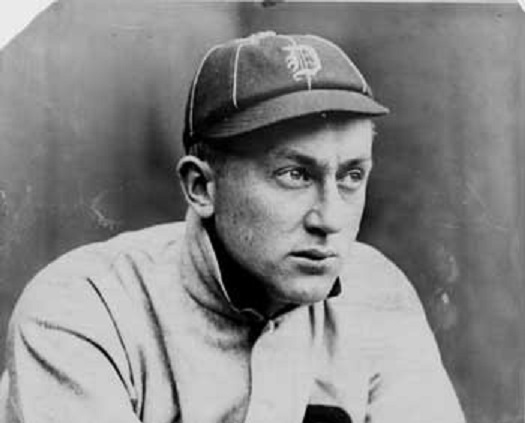
(8th all-time), .512 slugging average, and 5854 total bases (5th all-time). His 163 OPS+ is 10th all-time and well above the major league average of 100. He was the American League MVP in 1911, the American League Triple Crown winner in 1909, a 12-time American League batting champion (1st all-time), a four-time RBI leader, seven-time OBP leader, and eight-time slugging leader.
One amazing record that is often overlooked and we can safely say will never be broken is his streak of hitting over .300 in 23 consecutive seasons (1906-1928). The only season in which he didn’t hit over .300 was his rookie year of 1905 when he hit .240 in only 41 games. The following year he became a regular and never finished below the .300 mark for the next 22 seasons. The streak includes three seasons of .400, and 22 seasons over .320. He still holds the career record for most seasons with 200 or more hits with nine, and most steals of home plate with 54. He was the youngest player to compile 4,000 hits and score 2,000 runs. Cobb ranks fifth all-time in the number of games played (3034). On the negative side, he committed 271 errors, the most by any American League outfielder.
Ty Cobb’s Fabulous 1911 Season
In 1911, Ty Cobb led the American League in virtually every offensive category, including a .419 batting average, 248 hits, 148 runs, 127 RBIs, 83 stolen bases, 47 doubles, 24 triples, a .620 slugging percentage, 367 total bases, 1.086 OPS, 196 OBP+. In addition, he had a 40-game hitting streak. Remarkably his .466 on-base percentage did not lead the league. Cobb hit eight home runs but finished second in that category to Frank Baker, who hit eleven. He was awarded a second Chalmers car, this time for being voted the American League MVP by the Baseball Writers Association of America.
Cobb Plays “Mind-Games” with Shoeless Joe Jackson
Joe Jackson led him by .009 points in the 1911 batting race late in the season. Near
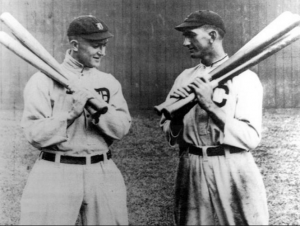
the end of the campaign, Cobb’s Tigers had a long series against Jackson’s Cleveland Naps. Fellow Southerners Cobb and Jackson were personally friendly both on and off the field. But the ever-scheming Cobb used that friendship to his advantage in the batting race. Here’s how:
Cobb ignored Jackson when Jackson tried to say anything to him during the series. One time, when Jackson persisted, Cobb snapped angrily back at him. Joe was left wondering what he could have done to enrage Cobb, not realizing Cobb was playing mind-games with him. The Georgia Peach later felt that it was these mind-games that caused Jackson to “fall off” to a final average of .408, a good eleven points lower than Cobb’s .419. This set a twentieth-century record that stood until Rogers Hornsby surpassed it with the current record, .424 in 1924.
Will there ever be another like Ty Cobb? I tend to doubt it!
Gary Livacari
Subscribe to our website, “Baseball History Comes Alive!” with over 1200 fully categorized baseball essays and photo galleries, now surpassing the half-million hits mark at 695K hits: www.baseballhistorycomesalive.com
Information: All statistics from Baseball-Reference.com. and from article on Ty Cobb’s records, MLB News and Notes: https://metsmerizedonline.com/2012/01/a-look-at-unbreakable-records-ty-cobbs-consecutive-300-seasons.html/
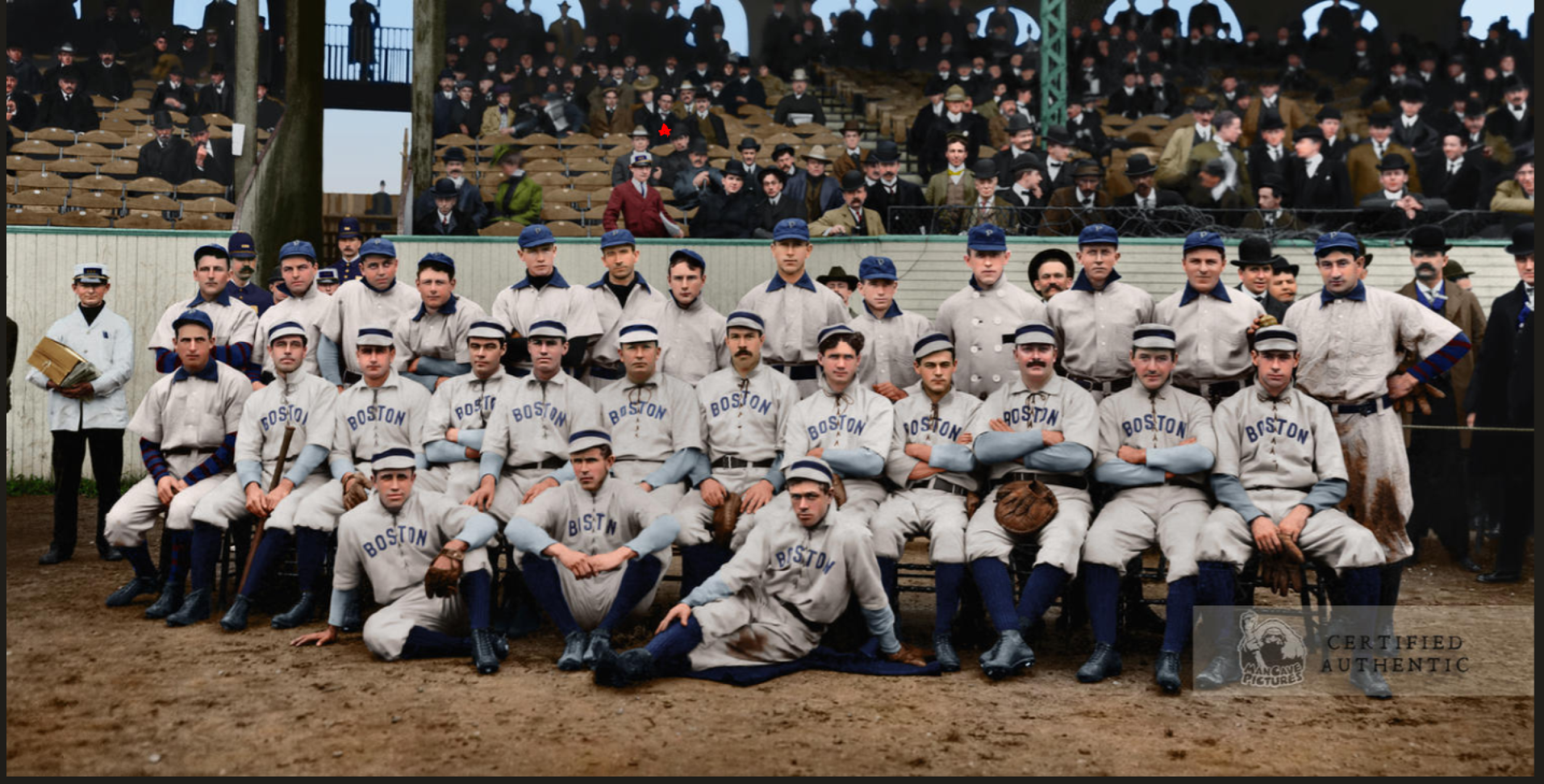
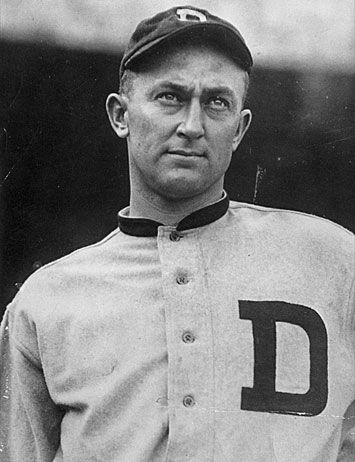
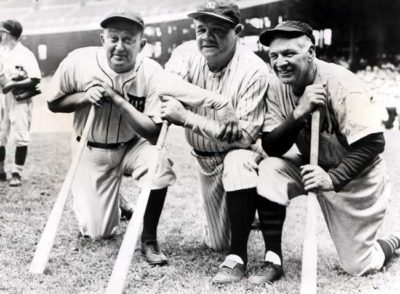
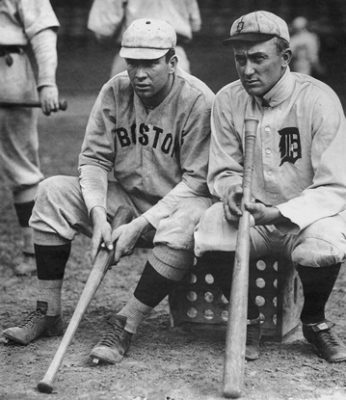
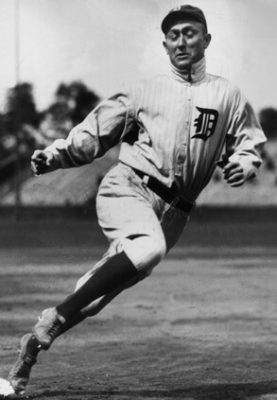

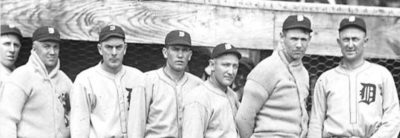
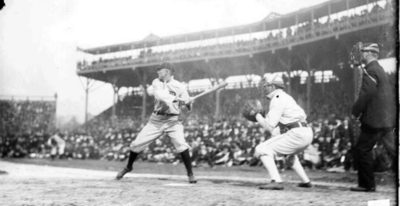
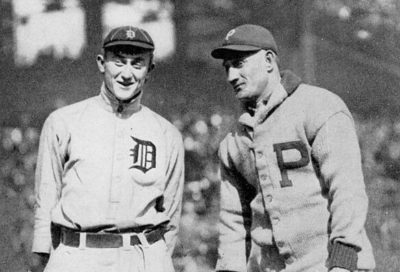
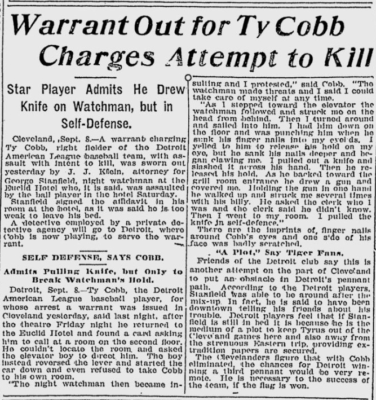
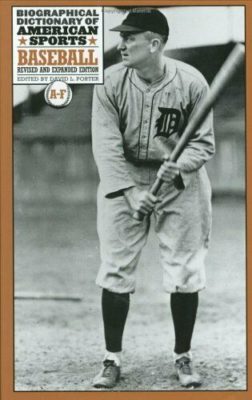
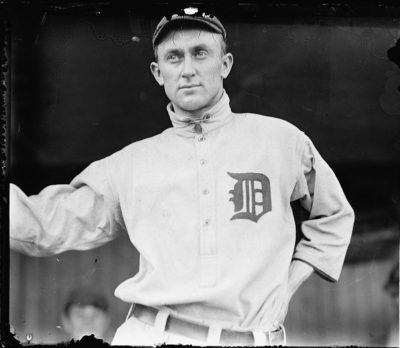
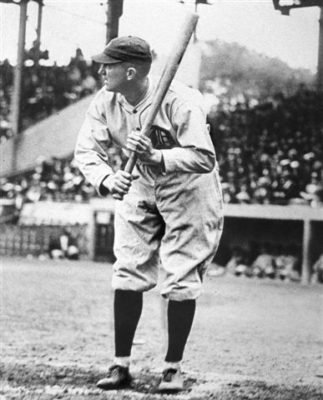
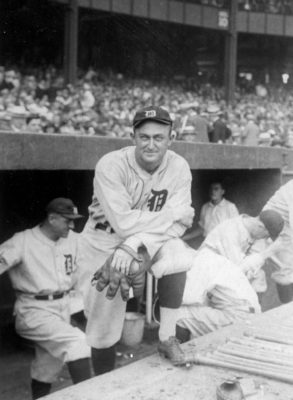
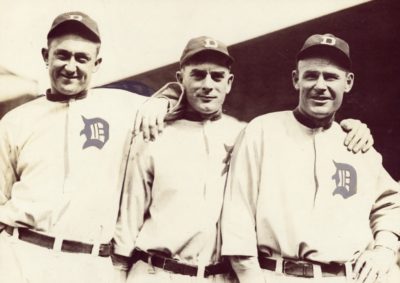
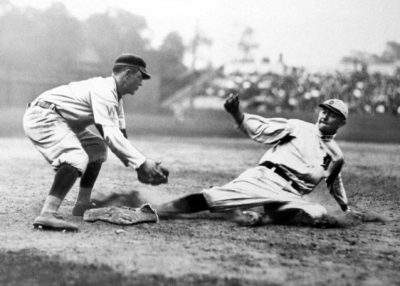
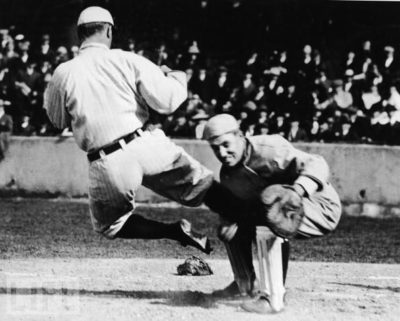
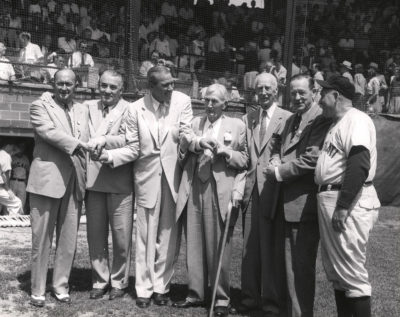
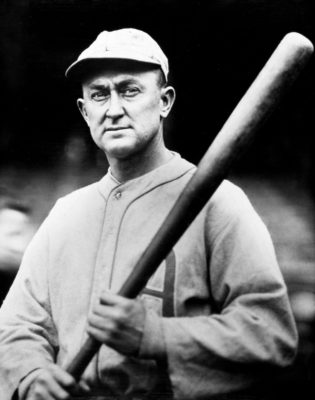
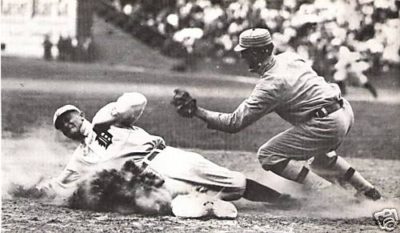
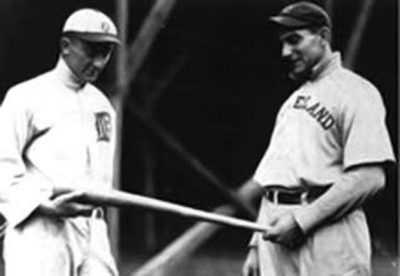
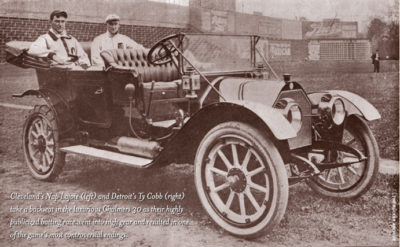
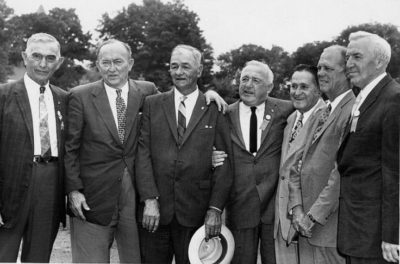
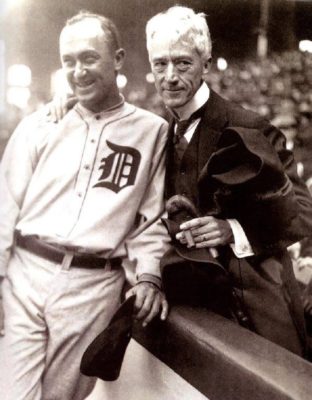
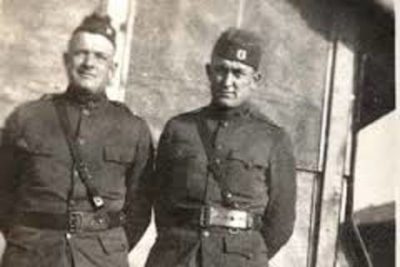
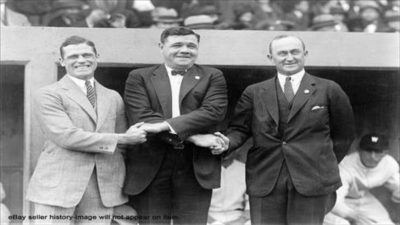
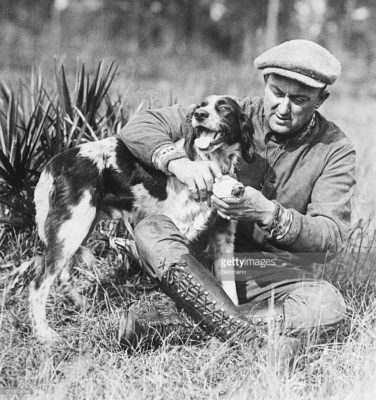
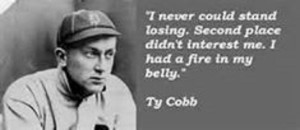
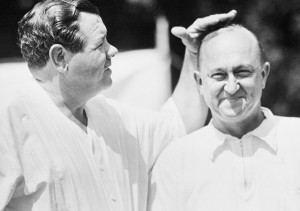

And your additional forte, DD, is running a one-of-a-kind super baseball website.
You can understand why Cobb would get a few votes for GOAT. Savage competitor but didn’t he mellow in retirement to become quite a philanthropist?
Never saw the movie “Cobb” with Tommy Lee Jones. Didn’t get good reviews. Did you see it?
Thanks Bill…look for a repost of my review of “The Terrible Beauty,” coming soon! No, didn’t see it.
Roger Clemens had a bit part in that movie as an opposing pitcher. Ron Shelton, who made Bill Durham directed this one. As Bill stated, didn’t get good reviews. It was based on the Al Stump biography, which “Terrible Beauty” refutes a lot of the Stump accusations.
That .411 batting average by “Shoeless Joe Jackson” is still the rookie record. When it came to fielding, Ty Cobb was no Tris Speaker. Cobb’s offense covered up his defensive weaknesses. When it came to the World Series for the Tigers, it was a case of good pitching beats good hitting.
One thing, probably unique to Cobb, was his odd grip on the bat at the plate. (Cobb was Ted Williams, before Ted Williams was; always looking for an edge over the opponents.) Evinced in two of your photos, Cobb gripped the bat with his hands six inches apart while he watched for his pitch. If the ball came in fat, Cobb would slide his upper hand down to his right and swing for the fences. If it was junk, he’d slide his lower hand up to his left, choking up, and could spray the ball all over the field. He drove opposing pitchers crazy with that tactic.